The labels and terminology we use in highly technical areas like IT Service Management (ITSM) are important. We need clear, commonly-held definitions to communicate and collaborate effectively.
Without a precise and agreed-upon description of, say, a particular set of IT service activities, it’s easy to find oneself halfway through a conversation with a prospective service provider only to realize both of you have different understandings of the concept that brought you together in the first place.
It’s awkward for sure, but often a little worse than that. Busy people taking time out of their day to get their problems solved don’t come away feeling particularly productive or optimistic when their time ends up wasted by an avoidable point of confusion. Relationships and work projects deserve better than to be derailed by misunderstandings.
There are many industry terms and concepts that lend themselves to differing definitions, but here, we’ve set our sights on clarifying one in particular: NOC managed services.
Read our comprehensive guide to NOC support for MSPs: NOC Services for Managed Service Providers: A Complete Guide
Demystifying the Term “NOC Managed Services”
Let’s approach this term by first looking at the broader concept of IT managed services.
This type of service conjures a description most industry people agree on: A company sells or licenses equipment to another company and then takes on the setup and ongoing management of that equipment. It starts with an equipment sale, continues into configuration, and continues further as an ongoing management service.
Gartner’s definition of a managed service provider (MSP) captures this traditional description by framing it as an “infrastructure” or “device-centric” type of service. But it also acknowledges that the definition has since expanded into something much broader:
“A managed service provider (MSP) delivers services, such as network, application, infrastructure and security, via ongoing and regular support and active administration on customers’ premises, in their MSP’s data center (hosting), or in a third-party data center. MSPs may deliver their own native services in conjunction with other providers’ services (for example, a security MSP providing sys admin on top of a third-party cloud IaaS). Pure-play MSPs focus on one vendor or technology, usually their own core offerings. Many MSPs include services from other types of providers. The term MSP traditionally was applied to infrastructure or device-centric types of services but has expanded to include any continuous, regular management, maintenance and support.”
— Gartner Glossary — Information Technology
A few parts of this definition help reveal the confusion surrounding a function-specific managed service term like “NOC managed services.”
Perhaps the most salient is the last line, where Gartner points out that the definition of an MSP has “expanded to include any continuous, regular management, maintenance, and support.”
Here’s where the confusion with a term like “NOC managed services” can arise: Gartner’s definition of an MSP also captures the essence of “outsourced NOC support,” a term that may often be used interchangeably to refer to the same thing as “NOC managed services”—but not always.
- Outsourced NOC support refers to hiring a third-party NOC provider to augment or become your NOC (rather than building and managing one yourself). Now, look back on Gartner’s definition of an MSP. Since outsourced NOC support is often a “continuous” (24x7) service that involves “regular management, maintenance, and support,” it technically fits under Gartner’s definition of an MSP. Therefore, someone isn’t wrong to refer to “outsourced NOC support” as “NOC managed services.”
- The problem with the term “NOC managed services” is that it invites an interpretation that’s more in line with the traditional understanding of an IT managed service. That is, purchasing or licensing equipment, deploying that equipment into a company, and managing it for them. This type of service, as we explore further in the next section, is not the same as outsourced NOC support.
“Outsourced NOC Support” vs. “NOC Managed Services”
Let’s take this one step further and break down each of these concepts bound up in the term to see where people end up using the terms interchangeably or to refer to two entirely different types of services.
What is Outsourced NOC Support?
Outsourced NOC support refers to a customized outsourced operational service that takes on the cost and complexity of setting up and completely running NOC operations (full outsourcing) or augmenting the client’s NOC—such as performing off-hours services or operationally and technically managing a subset of the infrastructure (partial outsourcing).
The NOC service provider first conducts an assessment to learn precisely how the service needs to be established and operationalized. Then they work with the client to turn up services. Support is delivered as an ongoing service—likely much more cost-effectively and less stressfully than performing those functions in-house. In fact, it’s sometimes called NOC as a Service (or NOCaaS).
When companies say they’re looking to “stand up a NOC” and are considering doing that themselves or outsourcing that work to a third-party NOC provider, outsourced NOC support, as we just described it, is most likely the right fit. An IT organization in this situation typically has many tasks for the NOC to do but doesn’t want a traditional managed service provider to license them equipment and then step in to manage it.
Instead, they want a support provider to bring their own NOC platform (or use the IT organization’s platform), processes, and people to replicate what an in-house NOC team would otherwise be doing and carry out that support on their behalf.
Which organizations are best suited for outsourced NOC support?
This type of service is needed most often by enterprises, communications service providers, OEMs, and similarly large organizations that need to monitor and manage multi-vendor and multi-technology stacks—ensuring maximum uptime and availability as well as peak operational performance.
Outsourced NOC support can afford these organizations significant cost efficiencies and scalability compared to building out a NOC in-house while also offering a long list of value-adds that simply wouldn’t be feasible to achieve in-house but are nonetheless extremely important from a support perspective.
Our white paper, Top 10 Challenges to Running a Successful NOC, goes into great detail for each of the challenges solved by outsourced NOC support, but below is the high-level list at a glance. If you find yourself nodding along with any of these, consider scheduling a free NOC consultation with our Solutions Engineering Team.
- Overutilized technology staff and exploding support costs due to a lack of a tiered organizational structure to manage workflows
- Blindness to issues and opportunities due to insufficient operational metrics
- High turnover and low employee morale, and difficulty in hiring, training, and retaining staff due to a lack of a staffing strategy
- Inconsistent responsiveness to issues or difficulty troubleshooting issues due to inadequate process frameworks
- A constant state of vulnerability due to a lack of a business continuity plan
- Recurring problems and an inability to emerge out of a reactive state due to a lack of experienced operational management
- Lots of data, but little actionable insight due to disparate tools and platforms
- Persistent operational problems due to out-of-date documentation and runbooks
- Stymied growth due to an inability to scale support for new services
While our white paper thoroughly addresses how outsourced NOC support is well-suited to solve each of these common problems, our platform page summarizes the components of a NOC and how they overcome these challenges.
Our NOC expertise page offers an even higher-level starting point for exploring all of the value-added capabilities and competencies.
What are NOC Managed Services?
Again, before we draw a distinction, many people use the term “NOC managed services” to describe what we just described as “outsourced NOC support.” It’s sometimes used as just another way of saying the same thing.
But as we also said before, others take the more traditional interpretation of managed service and think of a “NOC managed services provider” as a company that helps them license, deploy, and manage a set of hardware and software tools that run in their environment. With regard to the NOC, that would likely pertain to monitoring and managing your infrastructure support.
In this traditional model, a “pure” NOC MSP would turn up service for some number of devices at a specific set price per month.
Which organizations are best suited for traditional NOC managed services?
This model may be a great fit for IT integrators or circuit providers looking to add white-labeled support to their products, but not such a great fit for most enterprises and communications service providers that need a much more involved and customized solution in line with outsourced NOC support.
A traditional managed service provider will understand your goals and then design an entire architecture derived from a master plan. That will include building, buying, licensing, deploying, and testing those solutions, and eventually managing those solutions continually. Everything is standardized. As we mentioned before, the “best fits” for a pure MSP model are IT integrators or circuit providers looking to add white-labeled support to their products.
Summary, Final Thoughts, and Next Steps
While some organizations are a fit for a standardized managed services model, for most enterprises, communications service providers, and OEMs, the cost and complexity of building and managing a NOC is a diversion from focusing its attention where it's needed most: innovating and growing the business.
Outsourcing NOC support to an operationally mature NOC service provider is often the best option for getting the level of NOC service an organization needs to prevent expensive project delays, step out of the endless cycle of stress, and eliminate serious vulnerabilities that threaten the business.
An outsourced support provider enables you to take control of your infrastructure through a suite of NOC solutions designed to meet the specific needs of your technology environment and operational workflow—all while enabling you to focus internal resources on the projects that move the business forward.
Learn more about our outsourced NOC support services, perfect fit for enterprises, communication service providers, and OEMs. If you’re an MSP looking to enhance your enterprise or mid-market managed services offering with 24x7 NOC support, learn more about our VISION Partner Program and get in touch with us to schedule a partner discussion.
Want to learn more about our approach to outsourced NOC support? Schedule a free NOC consultation or contact us to see how we can help you improve your IT service strategy and NOC support or download our free white paper below.
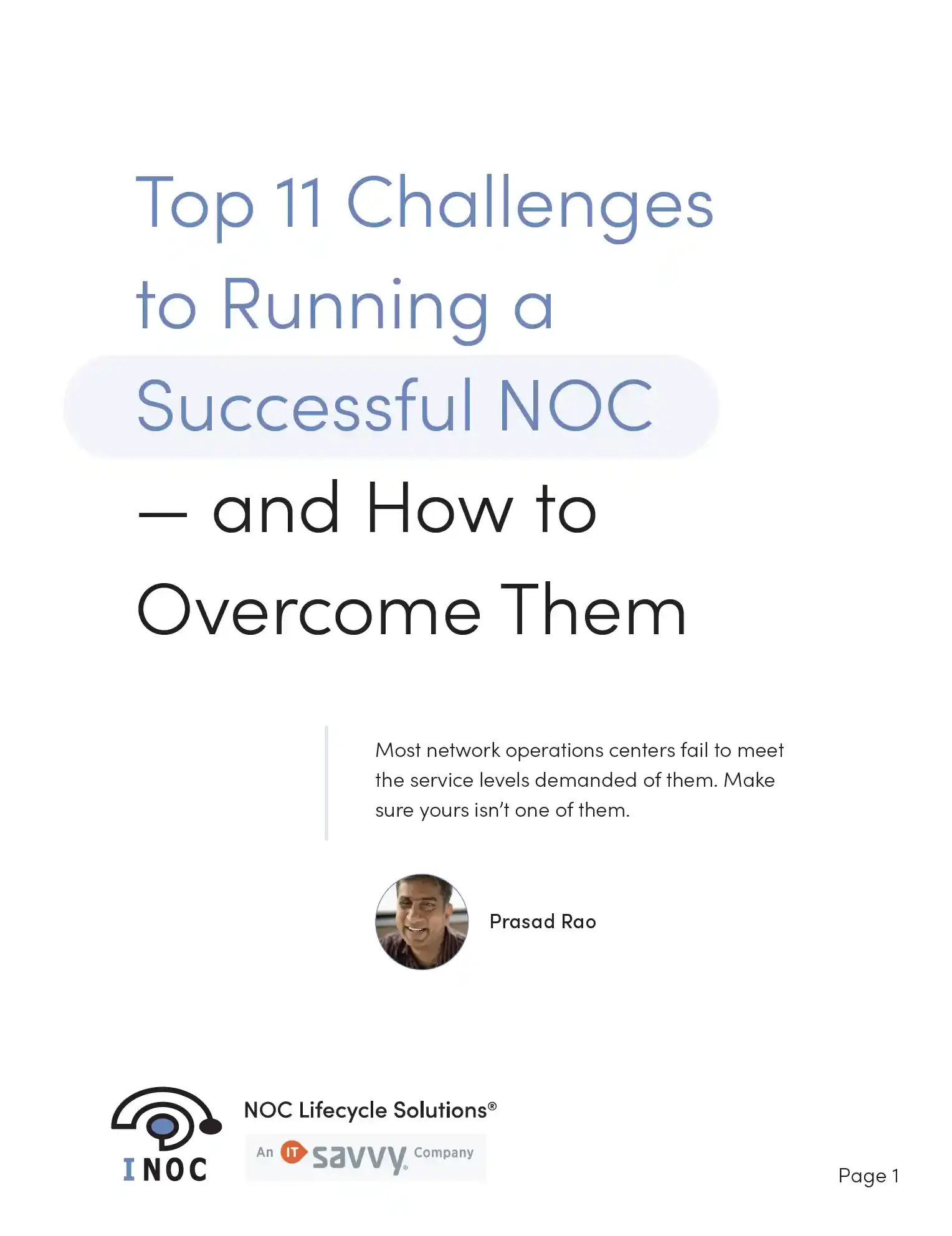
Free white paper Top 11 Challenges to Running a Successful NOC — and How to Solve Them
Download our free white paper and learn how to overcome the top challenges in running a successful NOC.






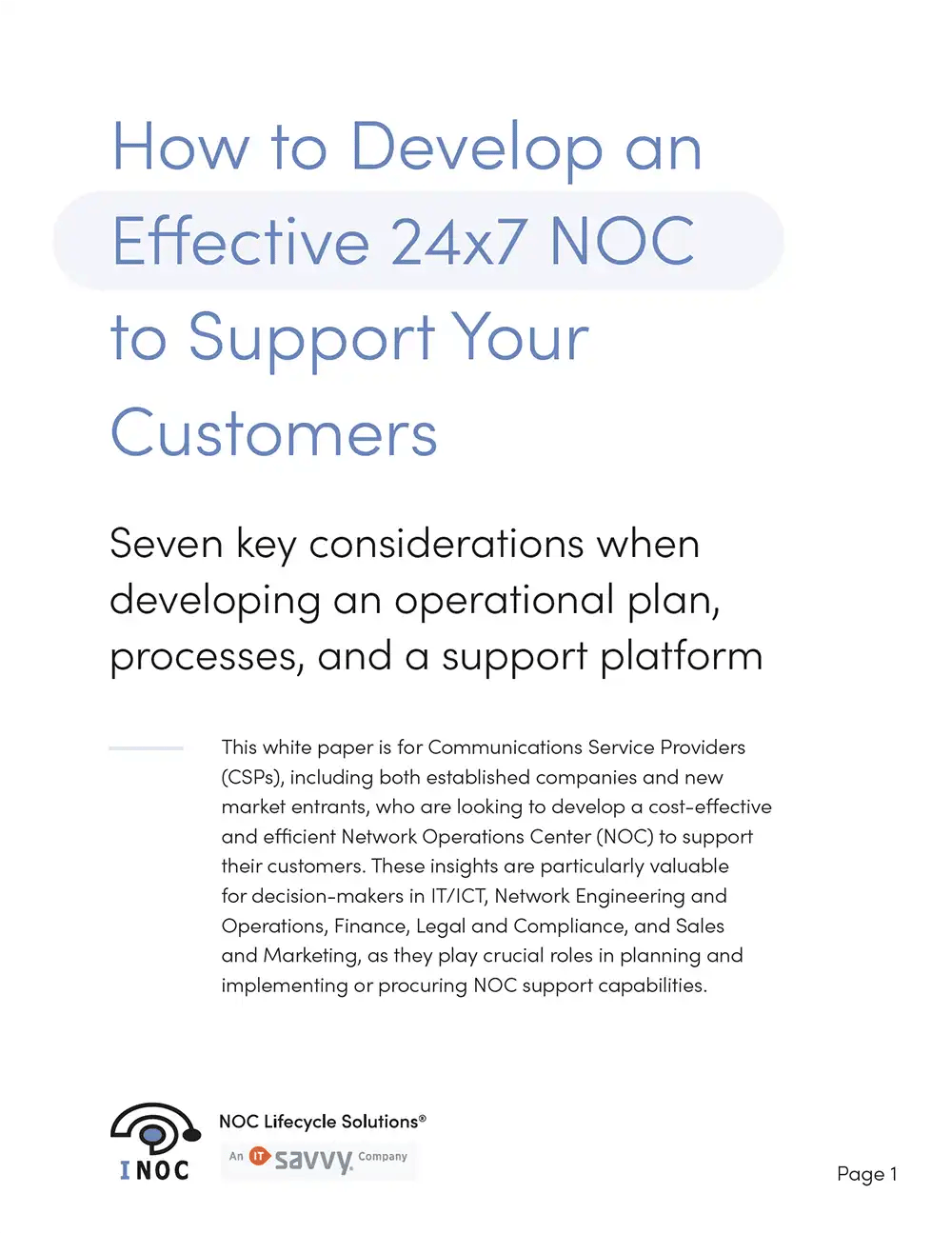

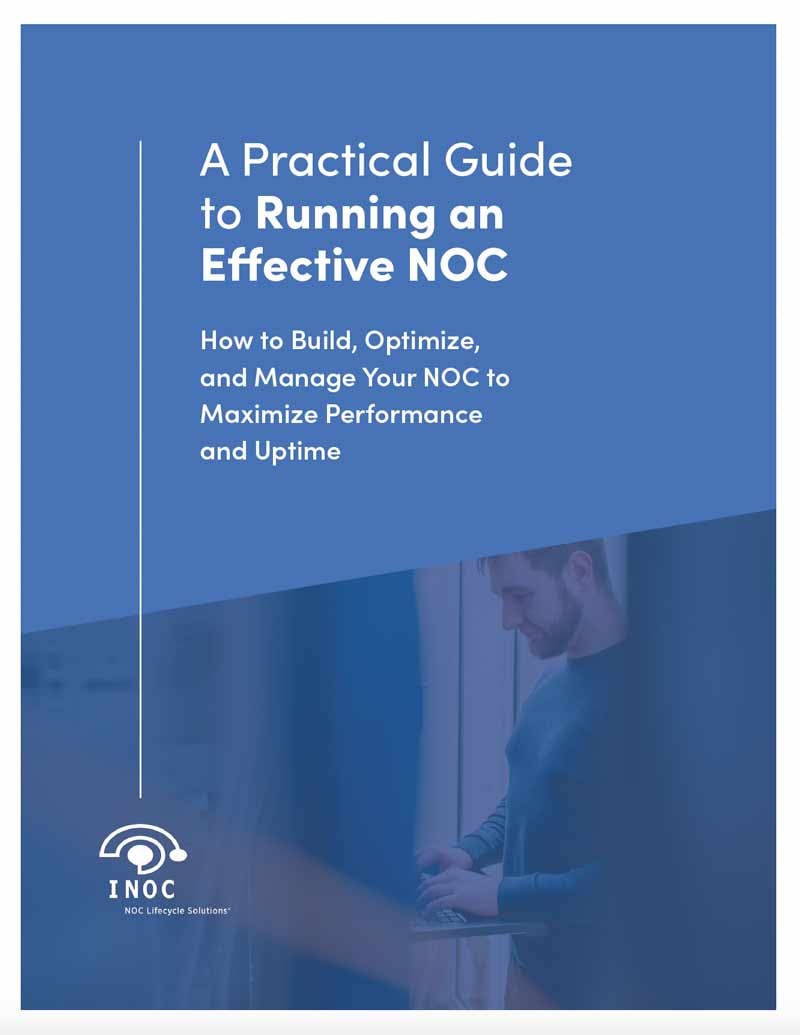
-images-0.jpg?height=2000&name=ino-WP-NOCPerformanceMetrics-01%20(1)-images-0.jpg)



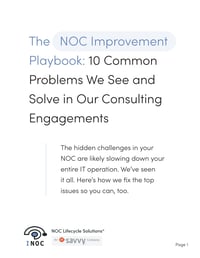

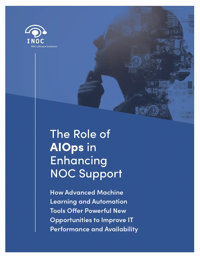

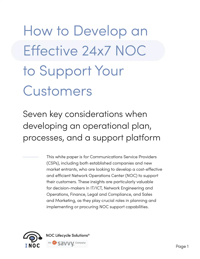
-images-0.jpg?width=200&height=259&name=ino-WP-NOCPerformanceMetrics-01%20(1)-images-0.jpg)